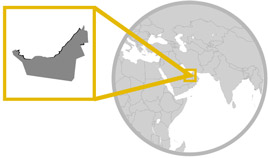Money
The Brazilian currency is the Brazilian Real and it uses the international currency code BRL, the Real can be divided down into 100 Centavos. BRL 1 is equal to $0.41 or £0.25.
Coins come in 1, 5, 10, 25 and 50 Centavo variants as well as a 1 Real Coin.
Bank Notes are available in 1, 2, 5, 10, 20, 50 and 100 Real variants.
Economy
Brazil has the seventh largest economy in the world and makes the majority of its money through a mix of Agricultural Production (9.2% Annual Growth) and Industrial Production (8.8% Annual Growth).
Agriculturally, Brazil is one of the biggest producers in the world of bovine exports, specifically cattle, which it exports over $1 Billion a year and has a herd of around 200 million cattle. Additionally the country produces over 110 Million tonnes of grain a year and over 50 Million tonnes of soybeans a year. Finally, it also produces short-fibre timber cellulose, packaging and both refined sugar and sugarcane, the latter of which it makes up 25% of the world’s exports, as well as for over 80% of the world’s orange juice.
The other major source of income is Industrial production, which accounts for around a third of Brazil’s gross domestic product (GDP). Produced goods within the country include steel, computers, automobiles, aircraft, petrochemicals and consumer durables. Through the country’s mining processes a plethora of minerals are available for process including nickel, chromite, bauxite, beryllium, lead, zinc, tin, uranium, copper, tungsten and even gold, this dramatically reduces the country’s dependence on foreign nations for materials for production.
Banking
Throughout Brazil, banks are numerous and with them there are a high number of ATMs, especially in shopping halls, which makes money withdrawal safe, quick and easy. Additionally, a high number of international banks can be found throughout the cities and towns of the region, making access to your money all that much more familiar. Bank accounts come in three variants: Current Accounts, Savings Accounts and Salary Payment Accounts.
Current Accounts are designed to work similarly to the way they do in the west, with a low interest but an unlimited amount of withdrawals allowed. This is to allow users quick and easy access to their money without having to worry about any sort of negative repercussions for withdrawing.
Savings Accounts are used for a higher rate of interest but typically will only allow for a certain amount of money to be withdrawn from the account. Additionally, regular deposits may have to be made into the account and usually these have to pass a certain threshold each month as well.
Salary Payment Accounts do just what they say on the tin, they’re used for paying salaries, mainly by low income employees. Additionally, Salary Payment Accounts are used frequently to transfer money into different bank’s accounts and have been designed to keep competition going between banks.
Taxes
Both all employees and self-employed individuals are liable for a Social Security tax, this is used to provide money through benefits to those who are injured or fall ill, as well as providing money to the family during pregnancy or death to help support them. All self-employed individuals pay 20% Social Security tax but employees are divided by salary and this varies from year to year:

